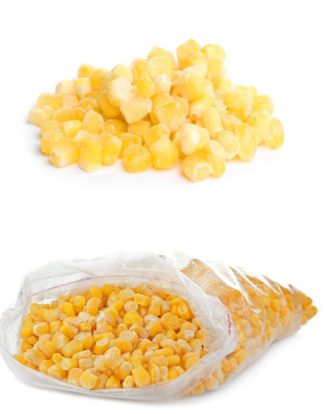The CFIA issued a recall on December 14 and 19 for Alasko brand frozen whole kernel corn and a secondary recall for Fraser Valley Meats brand frozen whole kernel corn on December 18. Several additional secondary recalls were issued for products made using the recalled Alasko frozen whole kernel corn. This notice has been updated to communicate the outbreak’s source and reflects 26 additional illnesses. There are now 110 Salmonella illnesses reported across 5 provinces (British Columbia (42), Alberta (49), Saskatchewan (4), Manitoba (13), and Ontario (2)). Based on the investigation findings to date, the outbreak is linked to Alasko brand frozen whole kernel corn. As part of the food safety investigation, the CFIA collected food items from restaurants where ill people dined. Traceback findings identified Alasko as the common brand of frozen corn consumed at various foodservice establishments by individuals who became sick. The illnesses reported in Ontario are related to travel to Alberta and British Columbia. Individuals became sick between early September 2021 and late December 2021. Four individuals have been hospitalized. No deaths have been reported. @ https://www.canada.ca/en/public-health/services/public-health-notices/2021/outbreak-salmonella-infections.html
ruth
To investigate an outbreak of Salmonella infections involving five provinces: British Columbia, Alberta, Saskatchewan, Manitoba and Ontario.
ruth
Food Poisoning Bulletin reported that Bake maple waffle sandwiches are recalled due to possible Listeria monocytogenes contamination. The information was posted on the FDA Data Access website. The sandwiches were distributed to distribution centers in Idaho and Pennsylvania. Bake Crafters (Mc Donald, Tennessee) initiated the recall. The recalled product is Bake Crafters Maple Waffle WG Chicken Sausage packaged into cardboard containers with 126 units per case. The lot number on this product is 21343; the product number is 6657, and the best by date is 12/09/22. One hundred sixty-two cases are included in this recall. No information any illnesses have been reported to the company to date was provided in the notice.@ https://foodpoisoningbulletin.com/2022/bake-crafters-maple-waffle-sandwiches-recalled-for-possible-listeria/
Bake Crafters maple waffle sandwiches are being recalled for possible Listeria monocytogenes contamination, according to a notice posted on the FDA Access
ruth
The CFIA reported a recall of several branded sandwiches, burgers and donairs due to a possible Listeria monocytogenes contamination. On January 24, 2021 the agency reported that HQ Fine Foods is recalling certain Quality fast foods brand and Hygaard Fine Foods Ltd. brand sandwiches from the marketplace due to possible Listeria monocytogenes contamination. The recalled products have been sold nationally. This recall was triggered by CFIA test results. There have been no reported illnesses associated with the consumption of these products. @ https://recalls-rappels.canada.ca/en/alert-recall/certain-quality-fast-foods-brand-and-hygaard-fine-foods-ltd-brand-sandwiches-0?utm_source=r_listserv
ruth
According to the ACCC, Saputo Dairy Australia Pty has recalled Devondale and Woolworths Butter and Spreadable Butter Blends from the Australian marketplace due to reported unspecified microbial contamination. The product was sold in 250 g and 500 g packages. The recalled products was sold nationally in various outlets, including Woolworths, Coles, ALDI, independent supermarkets, and Costco. @ https://www.productsafety.gov.au/recalls/saputo-dairy-australia-pty-ltd-%E2%80%94-devondale-and-woolworths-butter-and-spreadable-butter-blends-250g-and-500g




